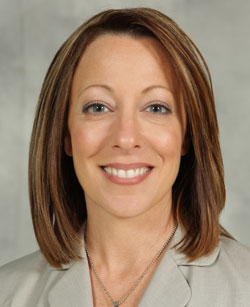
If you are feeling a little more rested today, you may think Daylight Saving Time had something to do with it. The practice of advancing clocks by one hour in the spring and “falling back” during autumn may have given us an additional hour of sleep; but Candice A. Alfano, professor of psychology and director of the UH Sleep and Anxiety Center of Houston, says our circadian rhythms – also known as our sleep/wake cycle – aren’t fooled by the change of time.
“When Daylight Saving ends, theoretically we get an extra hour of sleep,” Alfano said. “But the reality is that even if you are lucky enough to grab some extra z’s for one night, you are also likely to experience sleep disruption in the days that follow, usually in the form of waking up too early and/or having more trouble falling asleep. The bottom line is that it’s not so easy to fool your internal clock.”
Daylight Saving Time has been fraught with controversy since the United States adopted it in 1966. A study in the journal Sleep Medicine Reviews says the autumn transition is often popularized as a gain of one hour of sleep, but there is little evidence of extra sleep on that night. In fact, evidence suggests a net loss of sleep across the week. Furthermore, indirect evidence shows an increase in traffic accidents and changes in health and regulatory behaviors, which may be related to sleep disruption. Alfano agrees the adjustment to Daylight Saving Time is neither immediate nor without consequence.
“A clock time change has a similar effect on us as traveling across time zones,” Alfano said. “It causes a basic misalignment of our internal clock with the outside world. And just like when we travel across time zones, it can take time for our body to adjust to a new daylight schedule.”
Alfano notes that there are ways to minimize sleep disruption that often come with the end of Daylight Saving Time. One suggestion is to harness the power of the sun since it is the single greatest regulator of our circadian rhythm.
“When Daylight Saving Time ends, it gets darker earlier, but it is also more likely to be light outside when you wake up. Direct exposure to sunlight in the morning can help adjust your internal clock to match new clock times.”